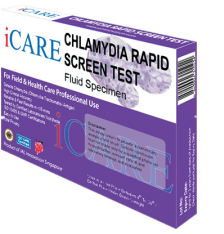Table of Contents
Chlamydia is one of the most common sexually transmitted infections (STIs) globally and its prevalence is a growing concern in Dominica. While chlamydia is often asymptomatic, it can lead to severe complications if left untreated, including infertility and pelvic inflammatory disease (PID). In Dominica, as in many Caribbean nations, there are significant barriers to addressing this issue, including a lack of awareness, stigma and limited access to testing.
Community engagement strategies focused on chlamydia awareness are crucial for overcoming these challenges. This article will explore various community engagement strategies aimed at raising chlamydia awareness in Dominica, with a focus on key cities like Roseau (the capital), Portsmouth, Marigot, Salisbury and Vieille Case.
The Importance of Chlamydia Awareness in Dominica
Chlamydia, though treatable with antibiotics, often goes undiagnosed due to its lack of obvious symptoms in many individuals. Without proper awareness and regular testing, many people in Dominica may unknowingly transmit the infection, contributing to its spread. Therefore, educating the population about chlamydia and the importance of regular testing is a critical public health goal.

Chlamydia rapid tests, are valuable tools in making testing more accessible and convenient. However, without a strong community awareness campaign, people may not know where to access these tests or why they should use them.
The challenge in Dominica is not just about providing chlamydia test kits but ensuring that communities understand the importance of early detection and treatment. This is especially true in Portsmouth, Marigot and other smaller towns where healthcare infrastructure might be more limited compared to the capital, Roseau.
Key Community Engagement Strategies for Chlamydia Awareness in Dominica
To increase chlamydia awareness, Dominica’s public health strategy must involve targeted community engagement efforts. Here are some of the most effective strategies to consider for raising awareness, promoting chlamydia self-test kits and encouraging testing in the country’s urban and rural areas.

Public Health Outreach in Urban and Rural Communities
Outreach programs that bring information directly to the people are essential for increasing awareness and encouraging people to get tested. In Roseau, the capital city, community-based programs could focus on distributing chlamydia rapid test kits through local health centers, pharmacies and youth organizations. In more remote areas like Vieille Case and Salisbury, outreach could focus on providing mobile testing units that bring testing services directly to the doorsteps of those who may not otherwise have access to healthcare.
Outreach programs can involve:
- Distributing Chlamydia Home Test Kits at local community centers and youth clubs.
- Setting up clinics in high-traffic areas like markets, schools and bus stations where people can learn more about chlamydia and receive testing kits.
- Offering free or low-cost testing in partnership with local health authorities to increase access, especially in rural areas where healthcare services are often less available.
The goal is to make chlamydia testing accessible and reduce the stigma surrounding it by making people aware of how easy it is to get tested and treated.
Collaboration with Local Health Providers and NGOs
Collaborating with local health providers, community organizations and NGOs can enhance efforts to raise awareness. Health providers in Portsmouth, Marigot and Salisbury are often trusted sources of information and advice.
Working with NGOs and local groups can help:
- Reach underserved populations, including youth, those with limited healthcare access and marginalized groups, with chlamydia screening kits.
- Facilitate public campaigns using trusted community influencers (e.g., church leaders, youth group leaders) who can spread the message and normalize conversations around sexual health.
- Host informational workshops in local areas to educate people about Chlamydia self-tests, how to use them and where to access them.
School and University Education Programs
A key strategy to raise chlamydia awareness is to integrate sexual health education into the school and university curriculums. Programs in high schools and universities in Roseau and Marigot can teach young people about the risks of chlamydia, the importance of safe sex and the availability of Chlamydia Home Test Kits. Engaging with young adults is crucial because they are at high risk of contracting chlamydia and may not always have access to traditional testing services.
Educational programs should include:
- Discussions on the importance of regular sexual health check-ups, especially for sexually active individuals.
- Demonstrations of how to use a Chlamydia self-test kit, ensuring that young people are familiar with the process and its benefits.
By promoting chlamydia testing in schools and universities, Dominica can create a culture of sexual health awareness from an early age, empowering young people to take responsibility for their health.

Social Media and Digital Campaigns
Social media platforms, such as Facebook, Instagram and Twitter, are effective tools for reaching younger audiences and increasing awareness about chlamydia testing. Using these platforms, public health organizations and NGOs can run campaigns that include:
- Infographics and videos explaining how chlamydia tests work, where to get them and the importance of early diagnosis.
- Patient testimonials and stories about the importance of chlamydia testing to reduce stigma and show real-life examples of how early detection saved lives.
Digital campaigns can also leverage hashtags and encourage people to share their experiences with Chlamydia home test kits or their journey to sexual health, helping to normalize conversations about STIs.
Conclusion
In Dominica, addressing chlamydia awareness is essential to reducing the spread of this common STI and improving public health outcomes. Through targeted community engagement strategies, including outreach programs, collaborations with local health providers, educational campaigns in schools and universities, digital awareness efforts and partnerships with local businesses, the country can make great strides in raising awareness about chlamydia testing and providing easier access to testing.
Cities like Roseau, Portsmouth, Marigot, Salisbury and Morne Bruce can lead the way in implementing these strategies, ensuring that residents understand the importance of regular chlamydia screening and know how to access chlamydia home test kits. With these efforts, Dominica can empower its population to take control of their sexual health and reduce the prevalence of untreated chlamydia and other STIs.
FAQS ON Chlamydia Field Use Rapid Test Kit
Chlamydia Awareness in Dominica – Community Engagement Strategies
What is a Chlamydia Rapid Test?
A Chlamydia Rapid Test is a diagnostic tool that provides results in minutes. It can be performed at home or in a healthcare facility to detect the presence of Chlamydia trachomatis in a sample of urine or swab.
How does a Chlamydia Self-Test Kit work?
A Chlamydia Self-Test Kit allows individuals to collect a sample (usually urine or a swab) and test it at home. Results are typically available within 20-30 minutes.
Where can I get a Chlamydia Test Kit in Dominica?
Chlamydia Test Kits are available at local pharmacies, health centers and through outreach programs in Roseau, Portsmouth, Marigot, Salisbury and Morne Bruce.
How accurate are Chlamydia Home Test Kits?
Chlamydia Home Test Kits are accurate when used correctly. However, a positive result should be followed by a clinical test for confirmation and treatment.
Why is Chlamydia testing important?
Testing for chlamydia is essential for early detection, preventing long-term complications like infertility and reducing the spread of the infection to others.






